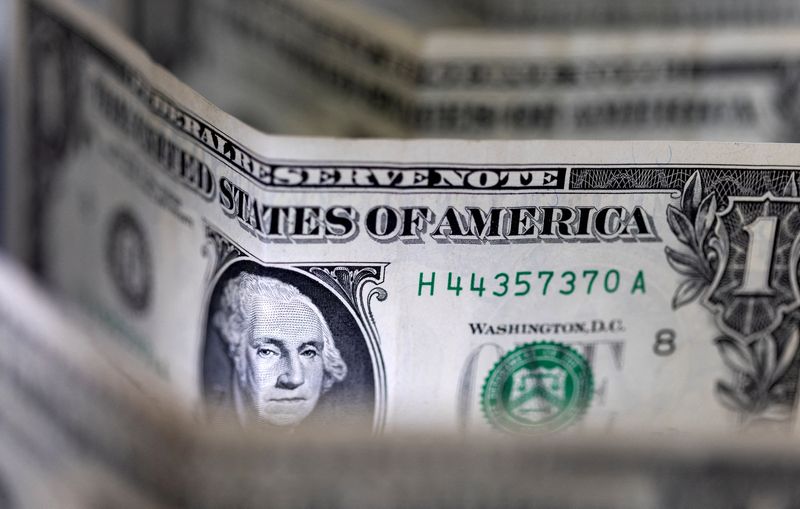Investing.com — Most Asian currencies weakened slightly on Monday as traders moved slightly toward the dollar ahead of key U.S. inflation data this week, which is expected to provide more clues about interest rates.
Regional trading volumes were muted due to a holiday in the Japanese market, with the yen also weakening slightly against the dollar. The pair rose 0.3% to 147.07 yen, retreating further after a stellar rally over the past month.
Anticipation of economic data and central bank meetings from across Asia kept traders on edge, while sentiment was also soured by reports that Iran could launch an attack on Israel in the coming days.
Dollar stable, CPI data available
The and both moved little in Asian trading, stabilizing after last week’s wild swings.
The focus this week is on key data, due Wednesday, for more clues about the world’s largest economy.
Inflation is expected to show some cooling through July, a trend that will likely give the Federal Reserve more confidence to cut rates.
The dollar has been battered in recent weeks by fears of a US recession and bets on further rate cuts, with traders pricing in the possibility of a 50 basis point cut in September, according to .
But some strong labor market data over the past week has helped prove fears of a U.S. recession are overblown.
The Chinese Yuan Weakens, More Economic Data Is Available
The Chinese yuan weakened on Monday, rising 0.2%.
While big losses in the yuan have come amid continued support from the People’s Bank, skepticism about China’s economy has left traders often short of the currency.
The focus this week is on China’s industrial production and retail sales, for more clues about the country’s biggest economic engines.
Broader Asian currencies fell as traders remained wary of risk-driven assets ahead of more signals from the world’s largest economies.
The Indian rupee pair has been hovering close to record highs and got some support from a somewhat hawkish message from the Reserve Bank of India last week. Indian data will be released later on Monday.
The South Korean won pair rose 0.4%, while the Singapore dollar pair rose slightly.
The Australian dollar was an exception, with the pair rising 0.2% after a slew of aggressive messages from the Reserve Bank of Australia last week.


